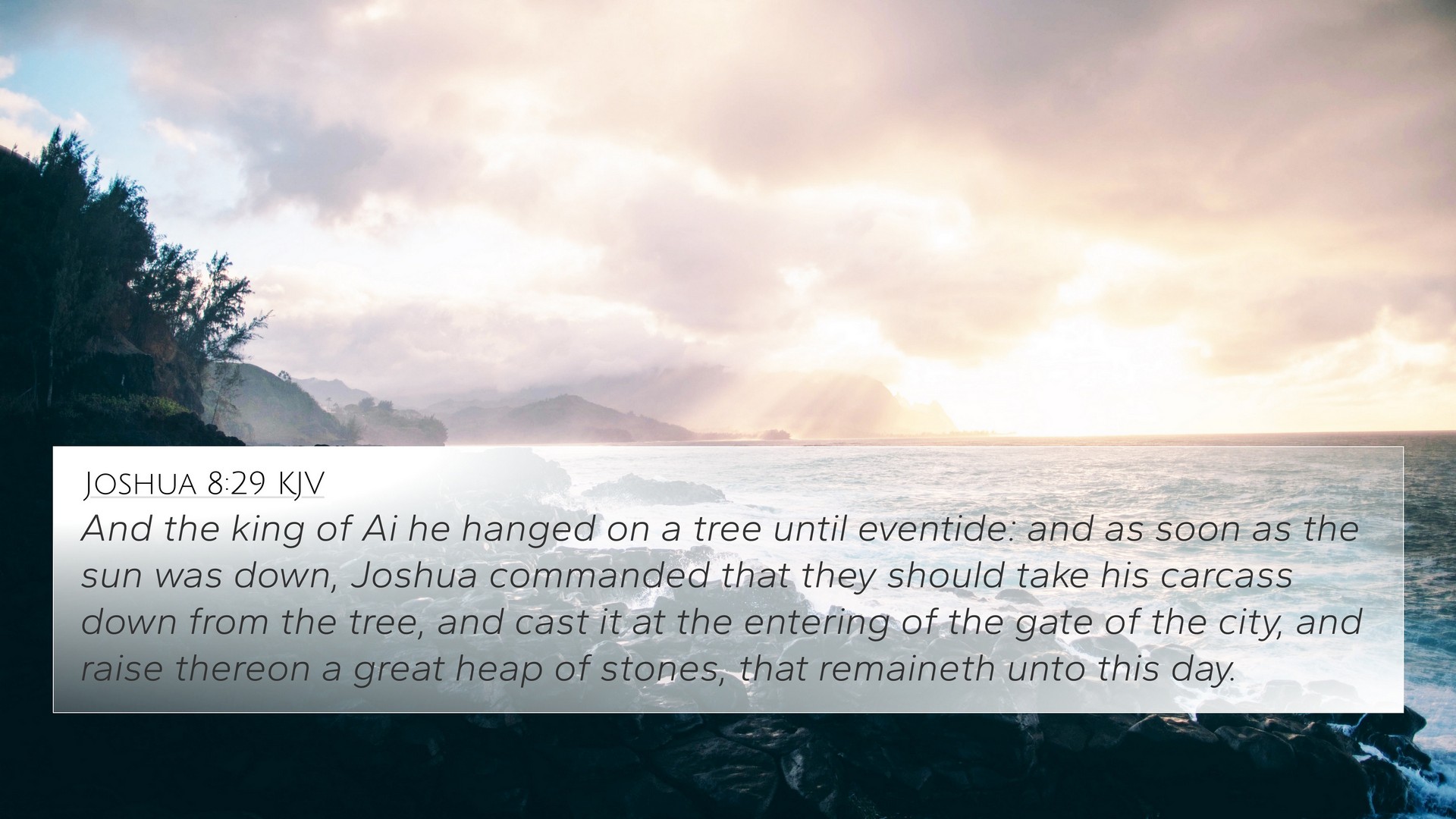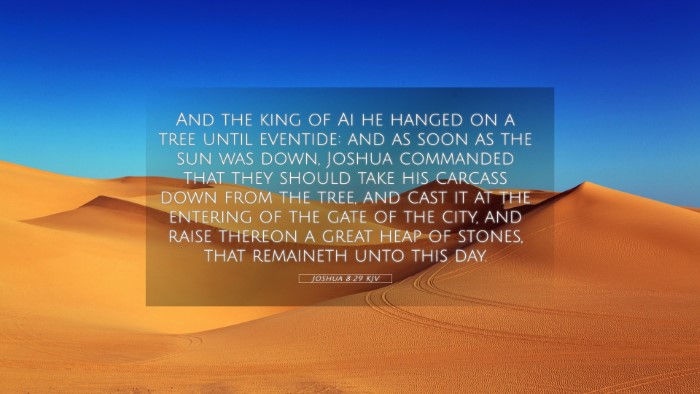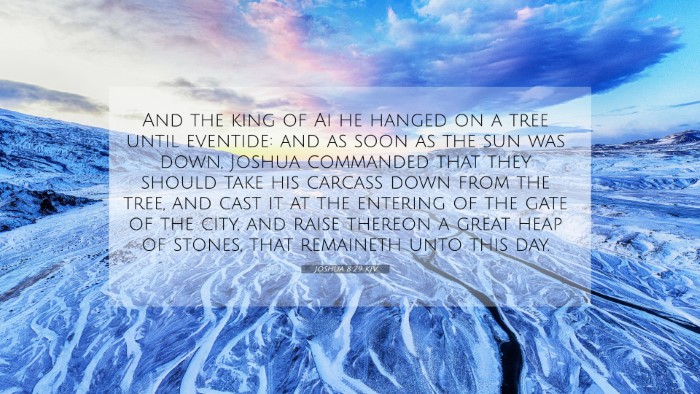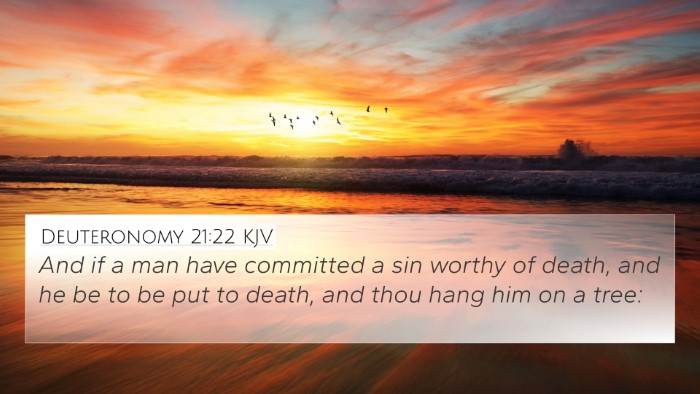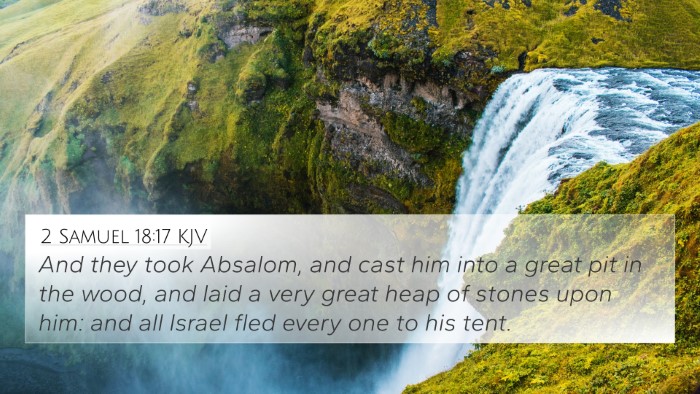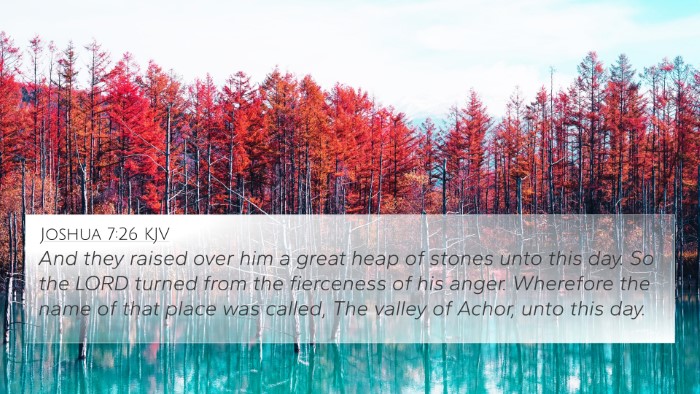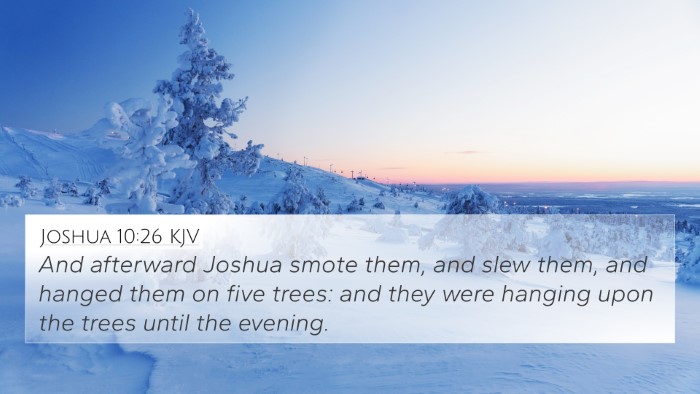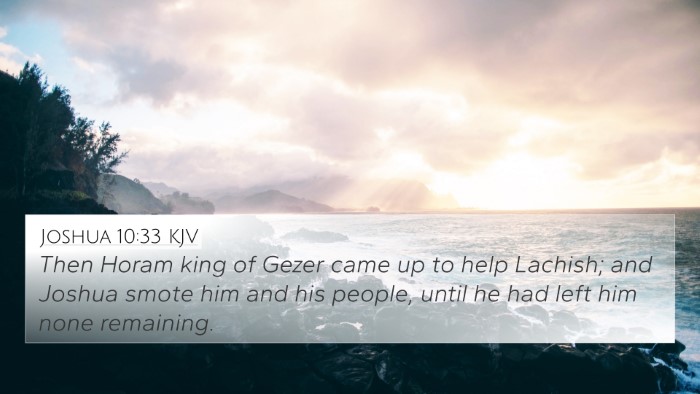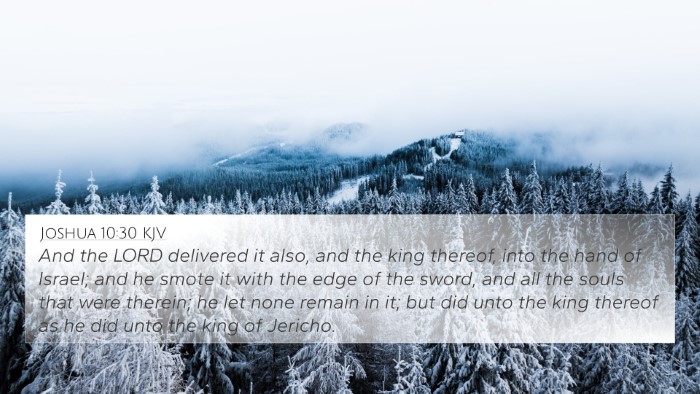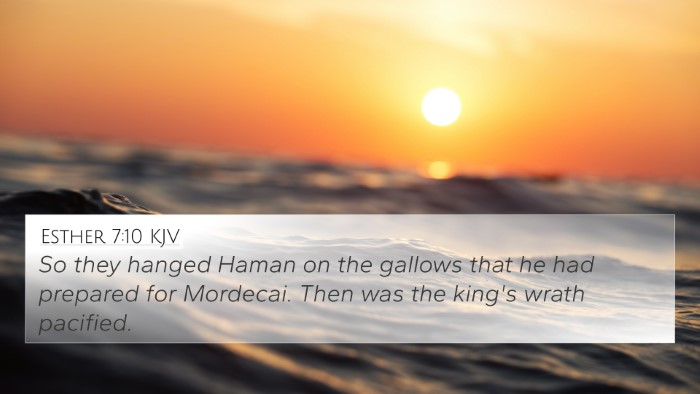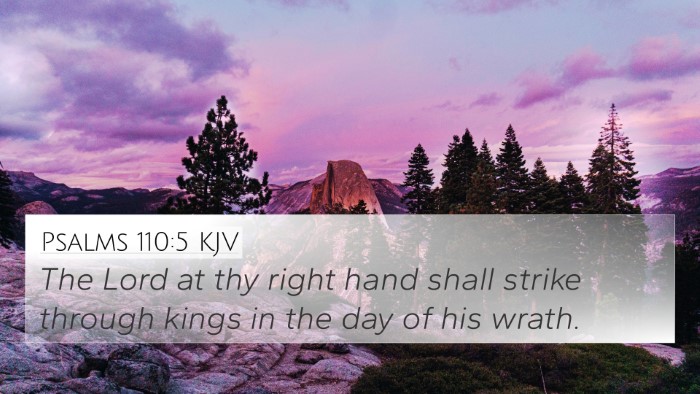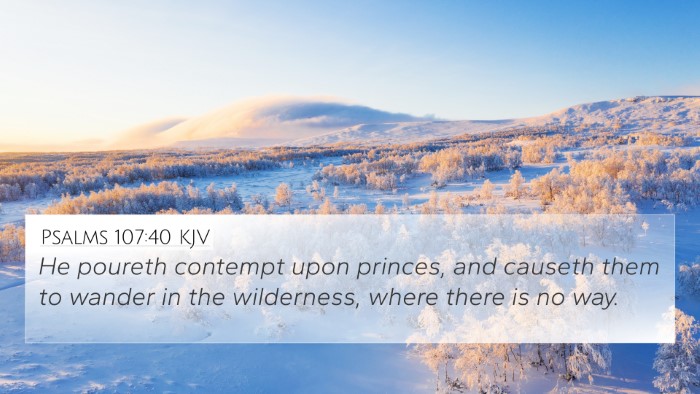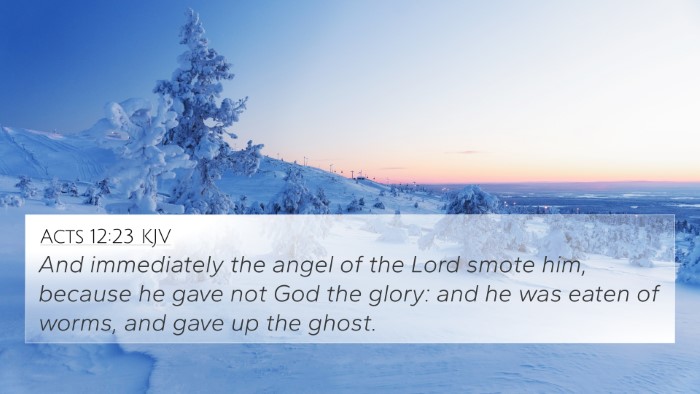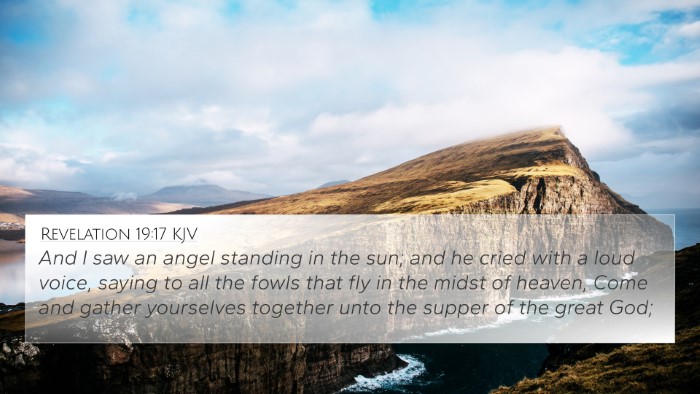Understanding Joshua 8:29
Joshua 8:29 says, "And the king of Ai he hanged on a tree until evening; and as soon as the sun was down, Joshua commanded that they should take his carcass down from the tree, and cast it at the entering of the gate of the city, and raise there a great heap of stones, that remaineth unto this day."
Summary of the Verse
This verse describes the fate of the king of Ai after the Israelite conquest of the city. After the battle, Joshua executes judgment by hanging the king and subsequently burying him, which serves as both a symbolic act and a warning against rebellion. The heap of stones signifies a permanent reminder of God's judgment and the triumph of Israel.
Interpretative Insights
- Matthew Henry's Commentary:
Henry emphasizes the importance of obedience to God's command in the context of the Israelite conquests. The act of hanging the king illustrates God’s disdain for idolatry and rebellion, and the removal of the body at sundown demonstrates respect for the laws concerning burial. The heap of stones serves as a memorial to the defeat of evil.
- Albert Barnes' Notes:
Barnes notes that hanging a king on a tree was both a punishment and a way of displaying the consequences of rebellion against God’s appointed authority. He points out that this act was consistent with ancient Near Eastern practices of showing the defeated leader's disgrace. The location of the heap of stones near the city gate was strategically significant as it served as a public reminder to all who entered the city.
- Adam Clarke's Commentary:
Clarke provides insight into the symbolism behind the hanging of the king, suggesting it represents the curse of being hanged upon a tree, linking it to broader themes of sin and accountability in the Scripture. He also ties in Deuteronomical laws regarding the treatment of executed bodies, highlighting the necessity to remove the king’s body before sunset to prevent defilement of the land.
Bible Verse Cross-References
Joshua 8:29 has significant thematic connections with several other Bible verses, as follows:
- **Deuteronomy 21:22-23** - Discusses the law regarding hanging a body on a tree, emphasizing the curse associated with such an act.
- **Galatians 3:13** - Paul discusses Christ’s redemption relating to the curse of the law, indicating that Jesus became a curse for us by being hung on a tree.
- **1 Samuel 31:10** - Reference to the hanging of Saul's body, illustrating similar themes of disgrace and judgment for rebellion.
- **2 Samuel 21:12** - Highlights the significance of honoring the dead and the cultural practices surrounding executions.
- **Joshua 10:27** - Similar execution and burial practices following battles, showcasing the treatment of defeated leaders.
- **Revelation 20:14** - Imagery of judgment and the permanence of God’s decrees, relating to the heap of stones in Joshua.
- **Matthew 27:37** - The inscription placed over Jesus' cross serves as a connection illustrating condemnation of rebellion against God's authority.
- **Numbers 15:36** - Reflects the importance of law observance, which is a common thread through the narrative in Joshua.
- **John 3:14** - Ties to the symbolic message of Jesus being lifted up, much like the king of Ai was displayed, as a warning of sin’s consequences.
- **Acts 5:30** - Discusses the act of hanging Jesus, which connects to the larger narrative of rebellion against divine order.
Thematic Connections
This passage invites us to explore numerous connections between Bible verses and themes of judgment, justice, and the consequences of sin. Through cross-referencing Biblical texts, we can see how such themes resonate throughout Scripture:
- Judgment and Justice: The execution of the king parallels divine judgment themes throughout the Bible.
- Consequences of Rebellion: The narrative of Ai symbolizes the broader consequences faced by those who oppose God.
- Mortality and Burial Laws: The importance of burial practices as seen in Jewish law highlights respect for the dead.
- Curses and Redemption: The connection to curses in the law and their fulfillment in the New Testament leads to reflections on the nature of sacrifice and redemption.
Conclusion
Joshua 8:29 offers rich insights into themes of divine judgment, respect for law and order, and the symbolic acts representing God’s authority. Through comparative Bible verse analysis, we can appreciate how this verse integrates into the larger narrative of Scripture, revealing connections that encourage deeper understanding and reflection.
For those engaging in cross-reference Bible study, this verse serves as a cornerstone for understanding the dynamics of God's justice and the importance of obedience in the life of believers.
